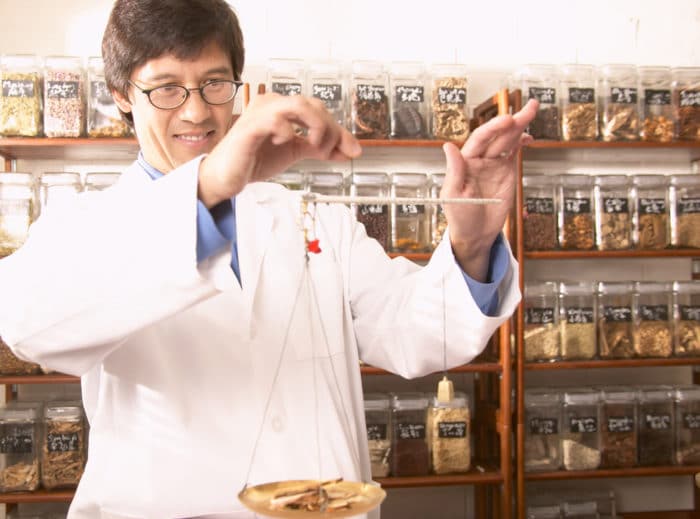Why We Love It
-
$56,400Potential Avg. Salary
-
13.8%Job Growth Rate
-
Growing DemandJob Outlook
-
Dependable Daily WorkloadCareer Attribute
A certified herbalist is a trained professional that deals with age old traditional herbal methods for the purpose of treating health problems and illnesses. This role may also involve producing and selling raw herbs for medical use.
Recommended Schools
What is a Herbalist?
Duties
An herbalist performs important functions that are highlighted below:
- Keep track of the latest trends and different medicinal research in the industry, to promote best practices involving plants and herbs, in particular their healing properties.
- Make time for regular meetings with patients to assess their medical conditions, and narrow down on the necessary treatment plan as per patients’ preference.
- Teach courses on alternative medicine at institutions such as medicine schools, research centers, colleges, etc., and help people with guidance on using herbs.
Day In The Life
In your role as an herbalist, you will regularly use various flowers, seeds, plant stems, roots and leaves to concoct herbal medicines and local remedies. In most cases, you will be self-employed and running an independent practice – more so, since many states do not legally recognize herbal medicine as a practice. You might also choose to work with other naturopathic physicians or medical care providers to evaluate patients and support their healing process.
While some herbalists choose to spend their day on the upkeep of plants, gathering plants or parts of plants from the wild, others may choose to directly purchase the required herbs from botanicals shops. For effective remedies, herbalists use a mixed approach, joining other types of treatment with herbal solutions, such as massage therapy, physiotherapy and acupuncture. Depending on where you are working, you may choose to become a specialist knowledgeable on a specific type of herbal medicine, like Western botanical medicine, Chinese traditions and Ayurveda.
Work Schedule
Most herbalists typically work at standard physician’s offices, such as a room in a medical clinic or a larger center, in close proximity to patients’ rooms. You would meet with patients at an office or meeting area. Offices consist of a waiting area, a reception desk and individual examination rooms. Working hours vary based on where you are working – e.g. you may work overtime when conducting research on plants or traditional remedies at a laboratory alongside scientists in the industry.
Growth Of The Job
According to the World Health Organization, the practice of herbal medicine is responsible for billions of dollars in revenue. The demand for alternative medicine is growing rapidly and has an untapped potential for future job opportunities. More and more people are opening up to the idea that there are other possibilities to modern medicine, and this makes the need for knowledgeable experts immediate.
Demonstrating knowledge and a strong level of understanding of different medical ailments is a must to come across as a reputable source of holistic medicine. You can find promising work in private practice or at an alternative medicine clinic. A few herbalists also take on teaching to spread awareness on the benefits of holistic medical treatment.
Typical Employers
There are many avenues to find work as an herbalist. For instance, you can work with producers to create innovative medicines, join massage therapy and acupuncture centers, or work in clinical settings. Other employers include health food and organic food stores, educational institutions and retail.
Recommended Schools
How To Become a Herbalist
There are no clear educational qualifications required for becoming an herbalist. Prospective herbalists are able to select from a wide range of different training programs. For instance, some schools tend to offer non-degree programs, training courses, and workshops in herbology. If you intend to advise clients and assess their medical issues, you must be take precautions as herbalists must not directly diagnose any conditions, if they are in an advisory position.
The American Herbalists Guild recommends that you enroll at a program that offers a minimum of 1600 hours of training and specialized study, which involves 400 hours of clinical practice. To be a Naturopathic physician, you must have completed at least a bachelor’s degree and then a 4-year Doctor of Naturopathic Medicine (ND) program.
In the process, you will familiarize yourself with relevant subjects such as herbal sciences, human anatomy, medical terminology, pharmacology and nutrition. To give supplemental treatment like massages and acupressure, many states require you to become certified by the National Certification Commission for Acupuncture and Oriental Medicine. To become a fully certified herbalist, you need to complete a formal education program in addition to getting a passable grade in an exam.
Herbalist Salary Data
We’ve provided you the following to learn more about this career. The salary and growth data on this page comes from recently published Bureau of Labor Statistics data while the recommendations and editorial content are based on our research.
National Anual Salary
Low Range
$33,300Average
$56,400High Range
$100,390National Hourly Wage
Low Range
$16/hrAverage
$27/hrHigh Range
$48/hrHow do Herbalist salaries stack up to other jobs across the country? Based on the latest jobs data nationwide, Herbalist's can make an average annual salary of $56,400, or $27 per hour. This makes it an Above Average Salary. On the lower end, they can make $33,300 or $16 per hour, perhaps when just starting out or based on the state you live in.
Salary Rankings And Facts
#309 Nationally for All Careers
Highest Education Among Herbalists
- 2.5% Doctorate
- 22% Masters
- 35.6% Bachelors
- 9.3% Associates
- 18% College
- 10% High School
- 2.6% Less than High School
Job Growth Projections and Forecast
2014 Total Jobs
44,2002024 Est. Jobs
50,300Job Growth Rate
13.8%Est. New Jobs
6,100How does Herbalist job growth stack up to other jobs across the country? By 2024, there will be a change of 6,100 jobs for a total of 50,300 people employed in the career nationwide. This is a 13.8% change in growth over the next ten years, giving the career a growth rate nationwide of Below Average.
Growth Rankings And Facts
#117 Nationally for All Careers
What Companies Employ The Most Herbalists
| Industry | Current Jobs | New Jobs Needed | % Increase |
|---|---|---|---|
| General medical and surgical hospitals; private | 14,800 | 1,100 | 1% |
| Federal government, excluding postal service | 4,900 | -500 | -1% |
| Offices of physicians | 2,500 | 500 | 1% |













